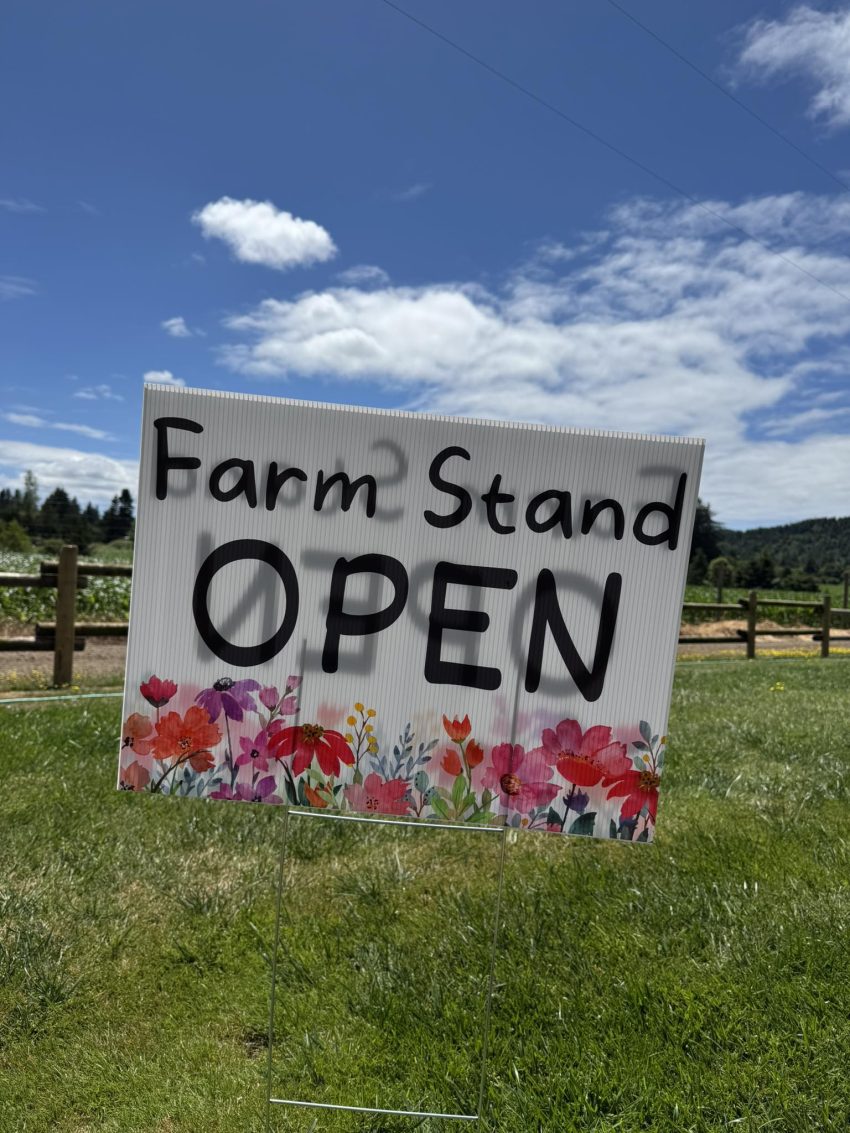SALEM – DLCD’s current rulemaking on Farm Stands is addressing topic we know are important to Oregonians – for small and medium-sized working farmers trying to make ends meet, for the communities they support, and for visitors eager to learn about and enjoy Oregon agriculture and share the experience with friends and family.
This rulemaking started as a conversation in the Legislature to improve farm stand policy. It quickly became clear that a more inclusive and deliberate process that involves interested parties would lead to better outcomes. The conversation at DLCD is in the beginning stages and any changes to existing farm stand rules will not be finalized until next year.
Community feedback is critical to make sure we improve the rules. We welcome farmers, decision makers, and all community members to share their thoughts.
“DLCD is committed to supporting Oregon farmers, farm stands, and the agricultural economy. Engaging in spirited conversation with Oregonians about these important issues is essential to our work and helps ensure the longevity of our agricultural and natural resources now and for future generations.”
– Director Brenda Bateman
There are different types of land use permits for different scales and intensities of agri-tourism activities. It is important to know that farm stands permits are distinct from agri-tourism permits. Farm stands are structures designed and used for the sale of farm crops, products, or livestock grown on the farm operation and throughout Oregon. Farm stands may also hold some outdoor events and sell incidental items that are not farm products, such as souvenirs.
Some low-intensity activities like U-Picks and roadside stands do not require land use permits at all. Larger or more intensive activities may require an agri-tourism permit or a commercial activity in conjunction with farm use permit. Agri-tourism relates to more intensive events that can have a broader impact on neighbors. The current rulemaking only addresses issues related to farm stands.
The current rulemaking clarifies what is permissible under a farm stand permit and also clarifies when no permit is needed or when a different permit is required.
We are currently in the early stages of this farm stand rulemaking process and have yet to issue formal proposed rules through the Secretary of State. A Rulemaking Advisory Committee (RAC) is currently meeting to discuss concepts that would clarify and improve existing policy. DLCD will issue a formal proposed rule based on input from the RAC through the Secretary of State later this year. Community members will then have about two months to review the draft language and provide input. You can learn more about the rulemaking process on the DLCD Rulemaking page. To receive future updates on this rulemaking, please sign up for GovDelivery.
A few important points about the concepts under discussion by the RAC:
The concepts would not:
- Prohibit farm stands.
- Prohibit agri-tourism (like concerts, festivals, and farm-to-table meals).
- Prohibit U-Pick activities, educational tours, cow trains, hayrides, or pumpkin patches.
- Prohibit promotional activities at farm stands.
- Allow restaurants at farm stands.
The concepts would:
- Clarify what types of activities do not need a permit. Activities like U-Pick, roadside stands selling products produced on the farm, and no-fee educational tours do not need a farm stand permit and are not subject to these potential rules .
- Allow farm stands to use temporary structures to shelter visitors at promotional events.
- Provide that non-farm products sold at a farm stand need to promote and relate to the farm products sold at the farm stand (ex: allows vases for cut flowers, baskets for produce, carving kits for pumpkins, etc.).
- Clarify what kind of events are allowed outright at farm stands without any additional permit and what kind of events require other permits. Examples of events allowed outright under a farm stand permit include activities like flower-arranging classes, fee-based farm tours, product sampling, hayrides/cow-trains to or through crop fields or pumpkin patches. Examples of events that require additional permits include: Offering 18 or more farm-to-table meals annually, events not directly related to farm operations or products sold at the farm stand (weddings, concerts, etc.).
- Clarify standards to help prevent neighbor conflicts with surrounding homes and other farms, the concept includes standards to reduce common complaints relating to traffic, parking, trespass, and glare from lighting.
- Require counties to verify that farm stands comply with their permits every seven years (The Department will not be moving forward with this concept).
- Continue to protect farms’ ability to sell products (including honey, meat, and alcohol) from throughout Oregon and adjacent counties in neighboring states.
There is still plenty of time to share your thoughts on the forthcoming proposed rules. Please send your written comment to farmforest.comment@dlcd.oregon.gov. We look forward to hearing from you!
 Oregon’s statewide land use planning program —originated in 1973 under Senate Bill 100 — protects farm and forest lands, conserves natural resources, promotes livable communities, facilitates orderly and efficient development, helps coordination among local governments, and enables community engagement.
Oregon’s statewide land use planning program —originated in 1973 under Senate Bill 100 — protects farm and forest lands, conserves natural resources, promotes livable communities, facilitates orderly and efficient development, helps coordination among local governments, and enables community engagement.
The program affords all Oregonians predictability and sustainability to the development process by ensuring allocation of urban land for industrial, commercial, and housing development. The Department of Land Conservation and Development (DLCD) administers the program. A seven-member volunteer citizen board known as the Land Conservation and Development Commission (LCDC) guides DLCD.
Under the program, all cities and counties have adopted comprehensive plans that meet mandatory state standards. The standards are 19 Statewide Planning Goals that address land use, development, housing, transportation, and conservation of natural resources. Technical assistance in the form of grants to local jurisdictions is a key element of the program.


